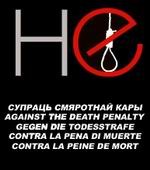Belarusian Human Rights House in exile in Vilnius and several other human rights organisations including Belarus Watch (Lithuania), Human Rights Centre "Viasna", Belarusian Helsinki Committee, Centre for Legal Transformation (Belarus) have addressed Catherine Ashton, the High Representative of the EU for Foreign Affairs and Security Policy, Audronius Azubalis, the Minister of Foreign Affairs of the Republic of Lithuania, the OSCE Chairman-in-Office, as well as Office of the UN High Commissioner for Human Rights and Office of the Commissioner for Human Rights of the Council of Europe.
 The author-organisations of the appeal together with the public campaign, "Human rights activists against the death penalty", expressed concern about the course of the trial of the accused of involvement in terrorist acts in the Republic of Belarus Uladzislau Kvaliou and Dzmitry Kanavalau. “Terrorism” is the most serious charge of those brought against them, with the death penalty provided as a punishment option by Belarusian legislation.
The author-organisations of the appeal together with the public campaign, "Human rights activists against the death penalty", expressed concern about the course of the trial of the accused of involvement in terrorist acts in the Republic of Belarus Uladzislau Kvaliou and Dzmitry Kanavalau. “Terrorism” is the most serious charge of those brought against them, with the death penalty provided as a punishment option by Belarusian legislation.
The authors pay special attention to the following facts:
– The victims of April 11 terrorist attack in Minsk metro have a number of questions regarding the impartiality and transparency of the trial and access to the case materials. Aliaksandr Kruty, a representative of one of the injured from the April 11 blast Inesa Krutaya, made a motion to abolish the death penalty and asked the court to defer consideration of the case. A few days later – on September 20 – he was arrested and sent to a mental hospital allegedly for hooliganism;
– The defendants claimed that they were exposed to torture during the investigation to extract confessions.
– Liubou Kavaliova, mother of one of the defendants, who does not believe in her son’s guilt, asks to support Kruty’s motion and proposes to put the issue of a ban on capital punishment in Belarus to a referendum.
– During the trial, independent journalists were banned from communicating with victims. The official media already refer to Kavaliou and Kanavalau as terrorists without awaiting the decision of the court.
In connection with the above-stated the authors of the appeal call upon the addresses to support initiatives by the victims of the attack and relatives of the accused in terrorism for the abolition of death penalty in Belarus; urge the Belarusian authorities to follow the lead of other post-Soviet states and to introduce moratorium on the death penalty, a decision that may be announced simply by a presidential decree; closely follow the situation around the investigation of terrorist attacks in Belarus in order to prevent murder of citizens by their own state regardless of whether they are found guilty of serious crimes, admit their guilt and whether indeed they are guilty.
***
At the moment Belarus – the only country in Europe, which continues to execute death sentences. For this reason, Belarus can not become a member country of the Council of Europe. Besides of ignoring international calls for the abolition of this punitive measure, the Belarusian government often disregards its own international obligations on cooperation with the UN human rights bodies. In particular, this is displayed by death sentences against Andrei Zhuk, Vasil Yuzepchuk (2010), Andrei Burdyka and Aleh Hryshkavets (2011), enforced despite the fact that interim measures of protection were issued regarding these cases by the UN Human Rights Committee.
Related articles
Released political prisoners tell about the pressure in prison
"The cause of death is «–» "
President vows "total cleansing" after terrorist act in Minsk


